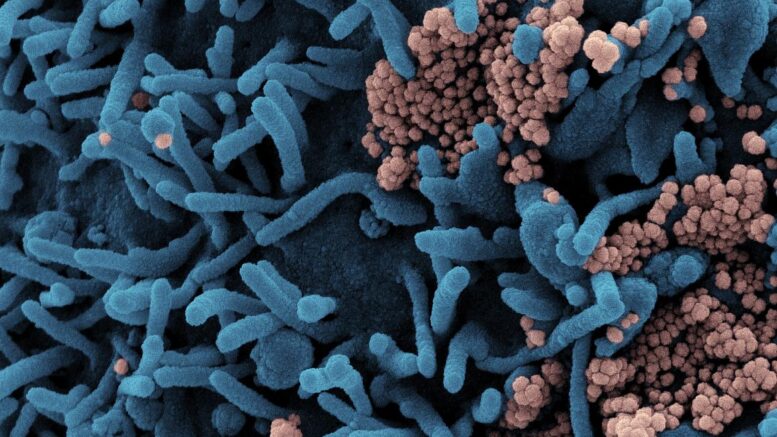As COVID case numbers continue to climb, doctors are seeing more patients struggling with a wide range of debilitating and potentially dangerous symptoms several months after contracting the virus. Now, a new study by researchers at National Jewish Health published in the American Journal of Respiratory and Critical Care Medicine is shedding light on the cause behind these long-term symptoms that will help experts begin to develop treatments.
“There is no common characteristic among those experiencing post-COVID syndrome. We see patients who are young and old, those with mild and severe cases of COVID and those who are active and healthy as well as some with pre-existing conditions,” said Irina Petrache, MD, chief of the Division of Pulmonary at National Jewish Health and a co-author of the study. “Some have subtle symptoms while others experience very obvious, life-altering health issues that keep them from returning to their normal day-to-day life. For most, initial testing of their heart and lungs was normal, so we looked deeper to the cellular level.”
To do this, researchers conducted exercise testing at the National Jewish Health Center for Post-COVID Care and Recovery, monitoring hundreds of data points as patients became fatigued on an exercise bike. Patients wore a specialized mask and electrodes that monitored their breathing and heart function, and, in some patients, an arterial line was also inserted to track blood oxygen levels.
They concluded that mitochondria – microorganisms in cells that are responsible for generating energy – did not function properly in patients with post-COVID syndrome. While the test revealed this dysfunction in muscle tissue, researchers believe this same process is related to symptoms originating in the pulmonary and neurological systems as well.
It’s a discovery that researchers hope will lead to treatments for patients like Joanna Zieger, who continues to struggle with fluctuating heart rates, extreme fatigue and memory issues five months after having COVID. As a former Olympic triathlete and Ironman champion, exercise is a major part of her lifestyle. But these days, she struggles just to take her dog for a walk or climb a flight of stairs.
“As soon as I start to move, my heart rate just skyrockets and my inability to focus and retain information is really affecting my work and my home life,” Zieger said. “Being physically active is really important to my mental health as well, and it’s been tough to have that taken away.”
Zieger is working with doctors at National Jewish Health to improve her symptoms, and hopes that all of the testing and information she’s provided to get to the bottom of her symptoms will also help others with post-COVID syndrome.
“It’s already made a world of difference to me to be treated by doctors in different specialties that are all working together to find answers for me and for everyone dealing with long-term effects of COVID,” Zieger said. “I think there is a misconception that COVID is like the flu and that once people clear the virus they just go on with their lives as normal. But there are a lot of people out there still struggling with lingering effects that are very serious and life-altering.”
Researchers will build upon the discoveries in the current study to better understand how the virus alters cells and how those effects can be reversed or repaired. Petrache says there are still many unknowns about COVID-19 and its long-term consequences, and that prevention is as important as ever.
“With the tests that we have available here and the great minds and curiosity of our doctors and researchers, we are leaving no page unturned, and we’re confident that we will have even more answers for those with post-COVID syndrome soon,” Petrache said. “But as we continue to learn more, the best way to avoid complications of COVID is prevention. We are seeing new waves of disease and reinfection with different versions of the virus, and we have to do everything we can to reduce infections by wearing masks and getting vaccinated.”
Source: National Jewish Health
